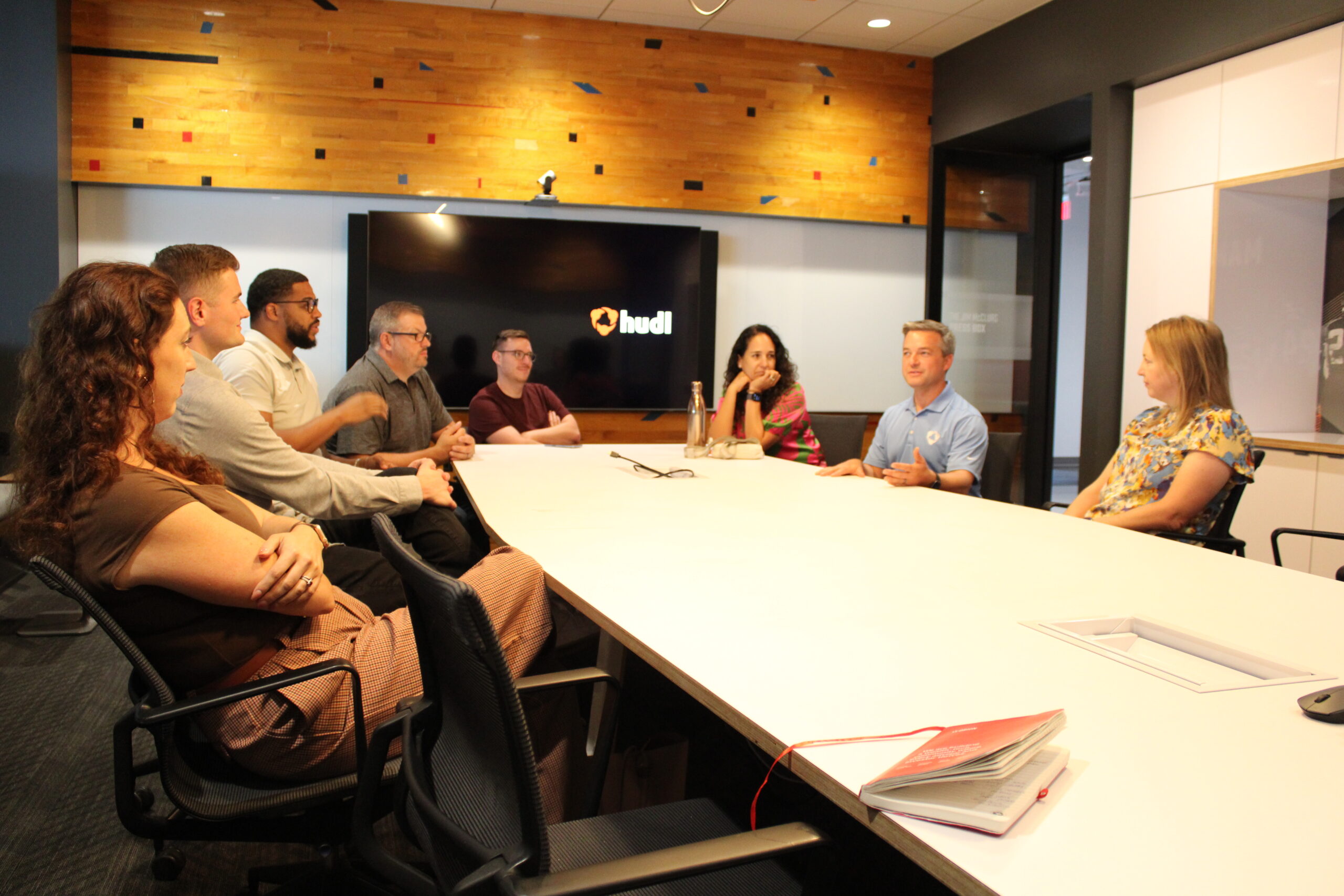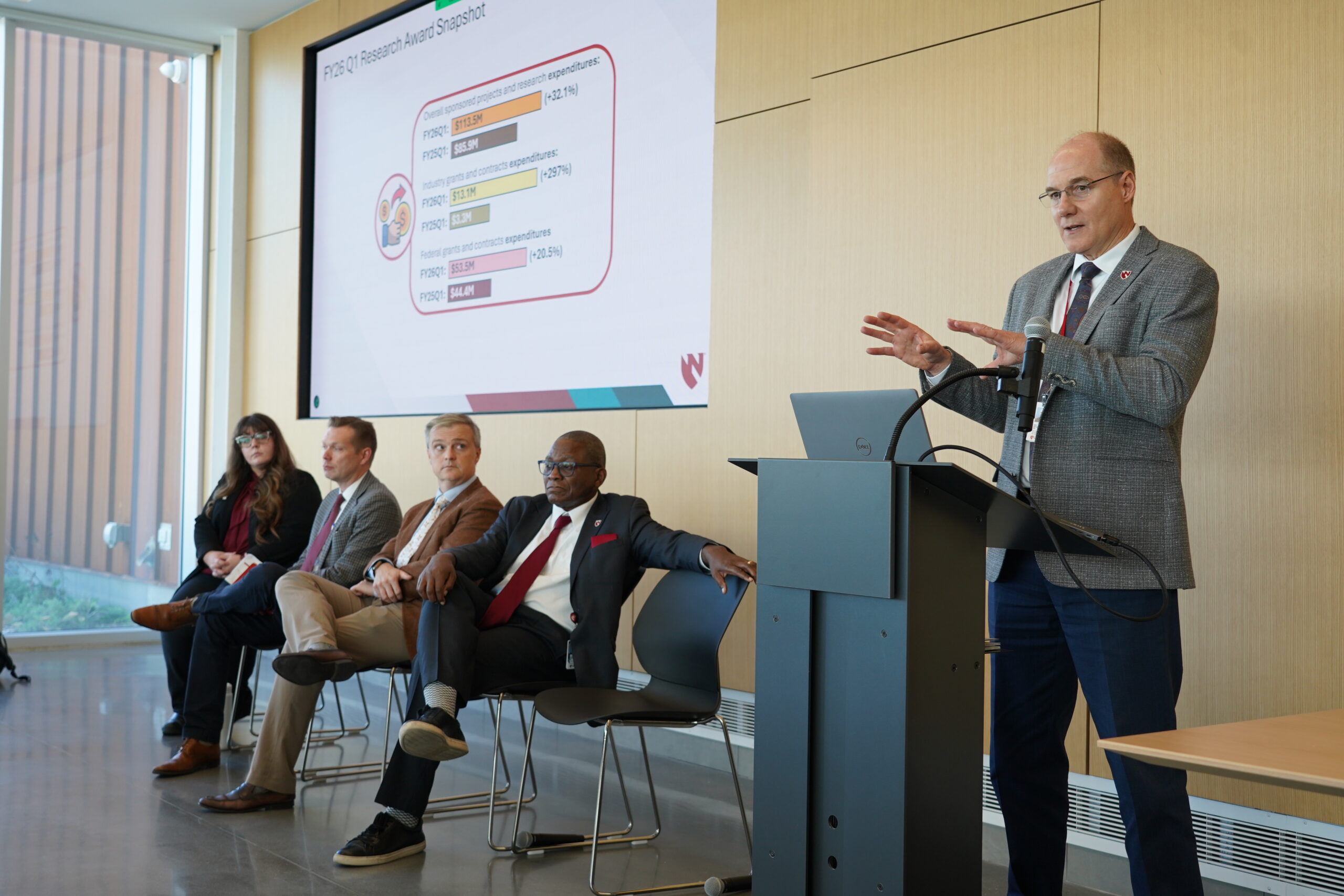Talk to tech entrepreneurs in Nebraska, and they’re likely to laud the region’s innovative spirit. Next-level startups like Flywheel, Buildertrend, Lunavi, Hudl and more have grown an international presence and put the Cornhusker state on the map.
Even a cornerstone enterprise like Lincoln-based Nelnet has implemented its own innovation division. Conferences like the IO Summit, Infotec and the AIM Developers Conference serve as rallying points for tech entrepreneurs, software developers, economic policymakers and anyone else with a stake in innovation.
“A lot of people I’ve brought into the IO Summit in the past, who have flown here and spent two or three days in the Midwest, they come back to the Valley or New York or wherever they’re situated and have really good things to say about what’s going on outside of the traditional tech hubs,” said Brian Ardinger, founder and host of the InsideOutside.io podcast. A seasoned entrepreneur, Ardinger organizes the annual IO Summit for innovation while also working as Director of Innovation for Nelnet.
In other words, it’s called the Silicon Prairie for a reason. Despite popular misconceptions, we have vision, and we can read a room better than anyone, as one particularly astute article put it a few years ago.
So why is “It’s so hard to get investment here” such a common refrain among founders?
Some local thought leaders in the startup ecosystem (who, understandably, wish to remain anonymous) have joked that investors and founders alike might be too enthralled by the Warren Buffett “snowball” approach to investment. They argue that an ideology focusing on early sustainability establishes an unnecessary mental barrier to ambitious growth. Rather than ardently seek funding for an idea scribbled on the back of a napkin, as apparently used to happen during the dot com boom, it has been said that Midwestern founders are more risk-averse, thinking they need to have $100,000 in the bank before anyone would willingly invest in them.
Tom Chapman, principal of Chapman and Company, doesn’t buy this. To him, the perceived lack of investment is due more to a lack of relationship building than a lack of capital.
“I have talked to both the Nebraska Angels and Invest Nebraska,” Chapman said. “They both expressed a desire to do more deals than have been presented to them.”
So is it just that our founders are too Nebraska nice to request support for their bold and brazen ideas? Should our startup ecosystem encourage a more quixotic approach to fundraising?
Not necessarily. Matt Foley, program director at Invest Nebraska and leader of the statewide agtech incubator The Combine, thinks the more reserved Midwestern way of doing things might serve startups especially well during the global COVID-19 pandemic, as investors—increasingly inclined to balk at loosening the purse strings while the shadow of ongoing economic uncertainty looms—shy away from risky or unproven ventures and instead back founders who have already shown some success on their own.
“Midwest startups that are often a bit more conservative on fundraising and burn rate might be at an advantage in 2021 as they will continue to be more selective on which growth strategies to pursue and the timing of follow on financing,” Foley said.
In fact, Foley said he is optimistic that the Silicon Prairie will follow national and historical trends of economic downturns catalyzing new venture creation. An ongoing pandemic might “incentivize those who have been kicking around an idea for a while to give it a serious go,” he said.
Even if some in the startup community might consider capital investment a bit lacking, there’s no doubt that the ecosystem is rife with programs, startup studios and incubators looking to help founders launch their dream enterprises. Some names that come to mind include UNeTech, Beeso Studio, gener8tor / NMotion, The Combine, the Nebraska Founders Institute and the Startup Collaborative.
Christina Oldfather, Director of Innovation and Entrepreneurship for the Lincoln Partnership for Economic Development, shared her outlook with SPN in our end-of-2020 wrap-up article.
“I hope we will see an increase in the number of founders building companies in the Silicon Prairie. As unemployment increases and industries change, people may turn to entrepreneurship out of necessity and/or opportunity. I think we will see more people starting companies and more people connecting and utilizing the infrastructure in our startup ecosystem,” she said.
Whatever the reasons for a perceived dearth of investment here, as the region’s premier tech entrepreneurial news organization, we’ll be sure to keep our eye on things and let you know the temperature of the room. As Midwesterners, we can’t not do that. It’s one of our greatest strengths.



